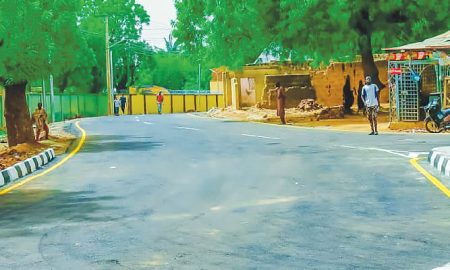The peaceful Kwallajiya village in Sokoto State, Nigeria, was shattered by a brutal attack on Wednesday afternoon, allegedly perpetrated by the notorious Lakurawa bandits. At least fifteen villagers lost their lives in the horrific incident, their bodies later laid to rest according to Islamic tradition. This tragedy underscores the persistent insecurity plaguing the region, highlighting the vulnerability of rural communities to these violent incursions. The recurring nature of such attacks has instilled fear and anxiety among residents, disrupting their lives and livelihoods, while the authorities struggle to contain the escalating violence. The attack on Kwallajiya village is not an isolated incident but rather part of a disturbing pattern of banditry and terrorism that has become increasingly prevalent in Northwest Nigeria.
The anonymity of the source who recounted the horrific event speaks volumes about the pervasive fear gripping the community. The fear of reprisal from the bandits often silences witnesses and hinders efforts to bring the perpetrators to justice. The source’s assertion that some residents might be complicit in these attacks by providing information to the bandits adds another layer of complexity to the situation. This potential internal threat underscores the erosion of trust within the community and further complicates the efforts of security agencies to combat the banditry. The desperation in the source’s plea for increased cooperation with security forces reveals the urgent need for collaborative efforts to address this escalating crisis.
The attacks are indeed symptomatic of a broader security challenge facing Nigeria, where various criminal groups, including bandits and terrorists, operate with relative impunity. The Northwest region, in particular, has become a hotbed of banditry, with these groups engaging in kidnappings, cattle rustling, and indiscriminate killings. The underlying causes are multifaceted and intertwined, ranging from poverty and unemployment to ethnic tensions and the proliferation of small arms and light weapons. The porous borders further exacerbate the situation, allowing these groups to move freely and evade capture. The recurring attacks not only claim lives and displace communities but also severely impact economic activities, hindering development and further marginalizing affected regions.
The inability to reach the Special Adviser to the Governor on Security Matters and the police spokesperson at the time of reporting highlights the challenges associated with obtaining timely information and official responses to these security breaches. This lack of immediate communication can contribute to the spread of misinformation and fuel anxieties within the affected communities and beyond. The absence of official statements also underscores the need for improved communication strategies and mechanisms to ensure that accurate and timely information is disseminated to the public, fostering transparency and accountability. The silence from the authorities leaves a void, amplifying the sense of insecurity and raising questions about the effectiveness of the government’s response to the crisis.
The attack on Kwallajiya village and similar incidents throughout the region demand a comprehensive and multifaceted approach to address the root causes of the violence. This includes strengthening security forces, improving intelligence gathering, and enhancing inter-agency cooperation. Equally important is the need to address the socio-economic factors that contribute to the proliferation of banditry, such as poverty, unemployment, and lack of access to education. Community engagement and dialogue are also crucial for building trust between security forces and local populations, facilitating information sharing and fostering collaboration in combating these criminal elements. Sustainable solutions require a long-term commitment to investing in human development, promoting good governance, and strengthening the rule of law.
The tragic events in Kwallajiya serve as a grim reminder of the urgent need for concerted action to address the escalating insecurity in Northwest Nigeria. The loss of innocent lives, the displacement of communities, and the disruption of livelihoods demand a comprehensive response that goes beyond mere condemnation. The government, security agencies, community leaders, and civil society organizations must work together to tackle the root causes of banditry and create a secure and stable environment for all citizens. The international community also has a role to play in supporting Nigeria’s efforts to combat terrorism and violent extremism, providing technical assistance, sharing best practices, and promoting regional cooperation. The people of Kwallajiya and countless other communities affected by this violence deserve nothing less than a sustained and determined effort to bring an end to the bloodshed and restore peace and security to their lives.










